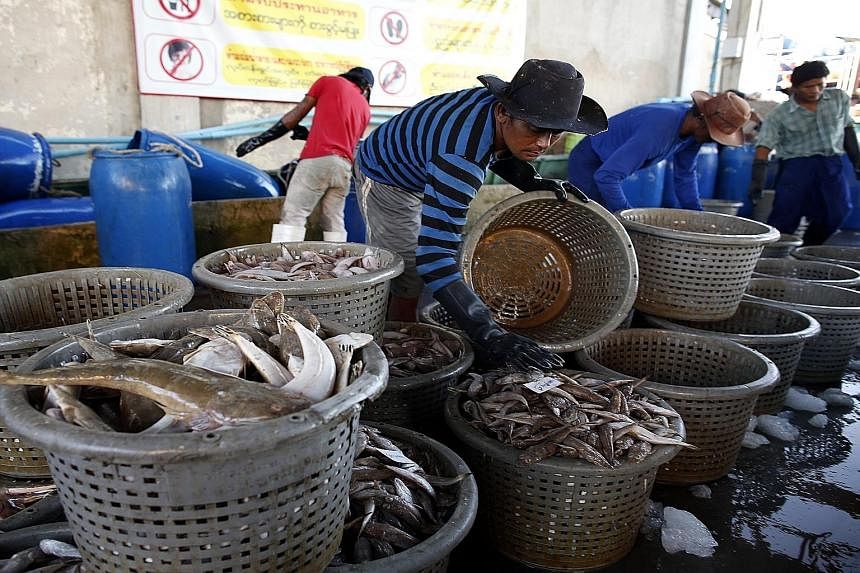BANGKOK • Fishermen in Thailand have gone on strike over new government regulations that took effect yesterday as the country clamped down on illegal fishing.
Thailand, which is the world's third-largest seafood exporter, was given six months by the European Union (EU) in April to crack down on illegal fishing or face a trade ban on its fish exports.
Thailand's annual fish exports to the EU are estimated to be worth between €575 million (S$867 million) and €730 million.
Overall fish exports were worth around US$3 billion (S$4.05 billion) last year, according to the Thai Frozen Foods Association.
National fishing associations said fishermen have gone on strike in 22 out of 76 provinces to protest against the new requirements.
Some have been unable to take their boats out to sea because they did not meet the new regulations requiring all boats to have licences, registered fishing equipment and navigation systems.
Others said they feared being caught. Those who do not comply with the regulations face up to three years in jail.
Thailand's National Shippers' Council said around 40,000 vessels have been registered to date, while 3,000 remain unregistered.
Mr Kamolsak Lertpaiboon, secretary-general of the Fishing Association of Thailand, said fishermen needed more time to comply with the new laws.
A high percentage of the Thai fishing fleet is outside of government control, making it difficult to track vessels. Some registered vessels sail without catch documentation and operation certificates.
Mr Aphisit Techanitisawad, president of the Thai Overseas Fisheries Association, thinks the government could have imposed a more lenient timeframe for changes, but Prime Minister Prayut Chan-o-cha told reporters that the industry has been unchecked for too long.
General Prayut called for calm yesterday and urged fishermen whose boats met the required standards not to go on strike.
"We can't avoid this crackdown because if we don't pass international assessment, what will happen?" he said. "Those vessels that can go out to fish must go."
Losing European sales for fish exports is something the ruling military can ill afford. Thailand's economy saw only 0.3 per cent growth in the first quarter and exports have been slowing, said the World Bank, partly because of an erosion in competitiveness.
Mr Wiriya Sirichaiekawat, vice-chairman of the National Fisheries Association of Thailand, feared a prolonged strike could lead to layoffs. Thailand's fishing industry employs more than 300,000 people.
Many of these workers are illegal immigrants from neighbouring countries.
Thailand is the fourth-major fish supplier to Singapore. Last year, the Republic imported 6,200 tonnes of fish from Thailand, according to the Agri-Food and Veterinary Authority of Singapore.
REUTERS, AGENCE FRANCE-PRESSE

